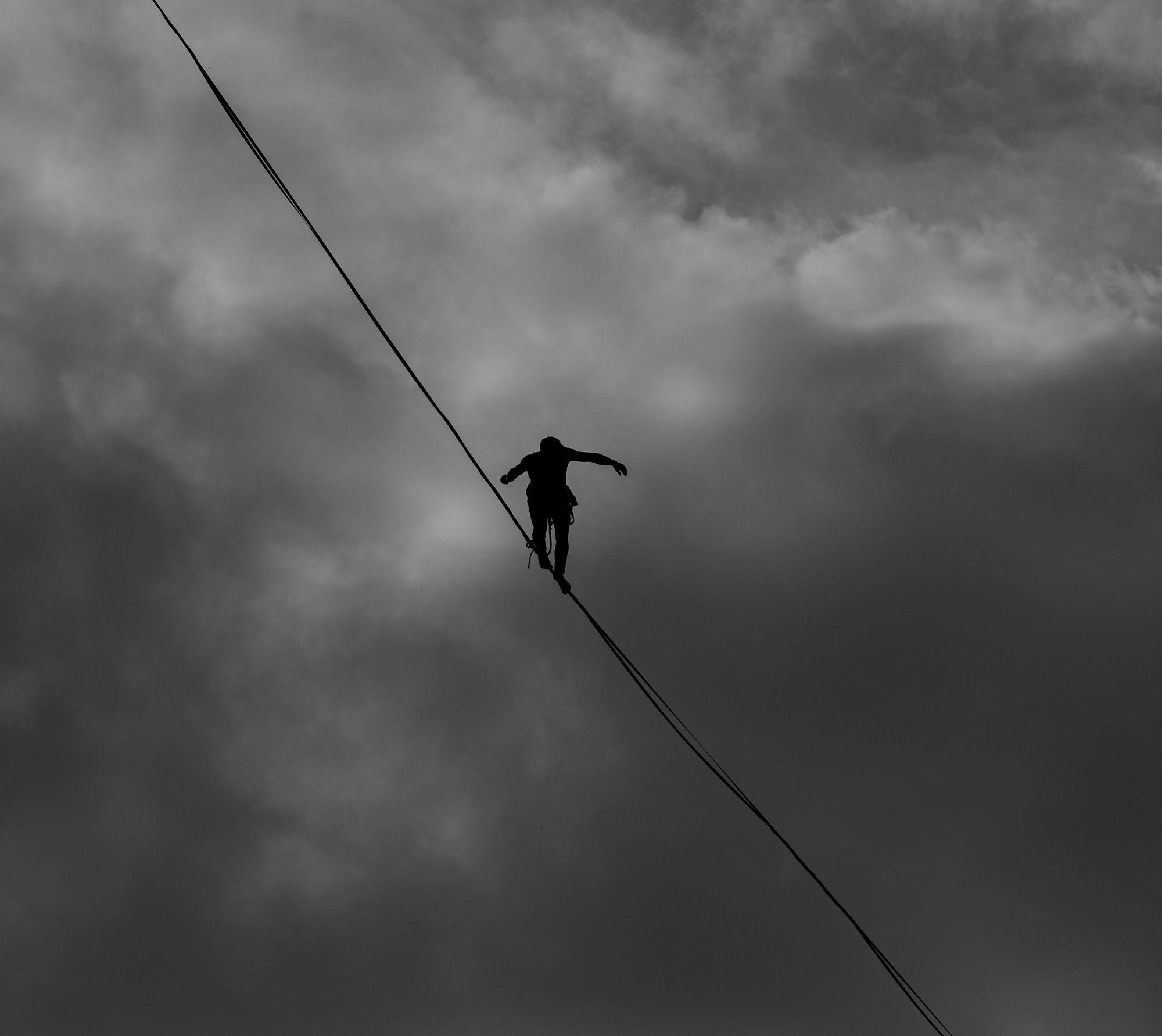A Learner's Fight: Adaptation vs. Education
Education saves time. Adaptation sharpens instincts.
My grades sucked at high school.
And I failed my first two years of university.
Then got top of the class for the next three years.
In school I’d rather play Call of Duty than do assignments or study for a test.
I ran the best Esports team in Australia before they called it Esports.
Me and a few school friends.
Every night we’d get on and play for hours making strategies and practicing.
We had to. The match was on Friday and again on Saturday if we won. Against other good teams. And they’d be doing similar things.
I was smart enough to pass an exam when I needed to.
Or smart enough to use my Dad’s login (he was a teacher at the school) to hack the smarter kids' accounts and steal their assignments and copy them and make their work better in enough places to get good marks and not get caught.
At university I was more interested in girls than classes.
My first year I kept pinching myself.
You don’t have to go to the classes?
I can just sit here under this tree and talk to pretty girls?
Hell yeah.
So I did.
But talking to girls will only teach you 25% of biology so I failed the rest.
Then one of the girls broke my heart (not her fault, I was young and fell in love for the first time).
And I got into lifting weights.
I wanted to get big. Real big. Filling a void with gravity and countless reps.
To help get big I started studying nutrition in my own time.
Lifted more weights.
Learned how you can manipulate your physiology with food. But also how large companies manipulate your physiology with their food.
After three semesters of failing, the Dean of Science called me in and asked me why I was failing.
I blamed it on my Dad being sick but it was really because none of the materials excited me.
He asked me what I was curious about.
And I told him I’d been lifting weights, learning about food.
He said why not change to nutrition and food science?
I can do that?
Yes.
So I did.
I’d already been watching YouTube videos and studying nutrition on my own.
I topped the class.
The lesson?
Breakups build bodybuilders.
Ha!
But another lesson too.
Adaptation vs. education.
I forget all the things I was told to learn (education) but I remember everything I was forced to learn on my own (adaptation).
In the gym, you’re big or not, you can see your abs or not.
Simple.
I wanted to grow my muscles and walk around without a shirt on 90% of the time.
So I surrounded myself with people who wanted to do the same.
Either I adapted and learned how or I’d be the outsider.
I quit my job to learn to code (for the third or fourth time).
The first few times I tried were through the education route. I tried to learn but gave up because it got hard and going back to what I was already doing was easier.
Quitting my job meant: learn to code or learn to live on the streets.
Obviously the latter wouldn’t really happen, I’d figure something else out but it felt like it would.
And the adaptation effect kicked in.
Adaptation and education are different but they aren’t separate.
Walk into a Brazilian Jiu Jitsu gym and you will be bombarded with terminology at the start of the session. Guard, side control, kimura, gable grip, mount.
What do all of these mean?
If it’s a beginner class, the instructor will break these terms down (education) but just knowing the name of them won’t help you when someone climbs on top of you.
It’s only after a series of ass kickings that you start to connect the terms to their relative positions (adaption).
And after a few months you no longer start to think of the name of things whilst you spar, they slot into your subconscious.
You can read all of the books you like on Brazilian Jiu Jitsu but there are certain things you can only learn by "getting the feel of it”.
When one learns to dance by watching and copying and getting the feel of it rather than following the steps of a diagram.
When the bowler in cricket or the pitcher in baseball develops their skill by feel rather than by studying precise technical details.
Adaptation and education complement each other. But it can be easy to get caught up in only one.
Education without adaptation results in an armchair philosopher, someone who offers thoughts and opinions without ever truly suffering or enjoying their consequences.
Or the student learning online who’s stuck in tutorial hell, always looking for the next guided tutorial rather than trying out their skills on their own.
Adaptation without education results in senseless charging toward the gunfire.
And although I’m a big advocate for doing rather than thinking, I’d be silly to walk into the ring and try to fight a professional fighter without at least educating myself and practicing my skills first.
The solution?
Combine them.
I could set the deadline for the fight. Six months. Then force myself to adapt to an approaching event whilst educating myself on the skills to not take a beating.
I failed at school because I saw no reason for learning the things we were learning other than to receive ticks on a criteria sheet I didn’t understand.
I failed at university because of the same problem. And for a 19 year old male who went to an all boys school, chasing girls was far more fun than going to class.
But Call of Duty, bodybuilding, Brazilian Jiu Jitsu, learning to code.
All of these required a tight balance between education and adaptation.
I’d put myself in a situation where learning was both fun and playful but also socially required.
Learning more resulted in a direct change in reality.
Rather than the drudgery of attending a class timed by a bell.
And now learning new skills like product development and farming.
I have to remind myself to juggle adaptation and education.
For product development, my brother and I are building an app called Nutrify, a Pokédex for food.
Education wise, I’ve got to learn the pieces of the puzzle around it, what’s a database? What’s an API call? Which machine learning model should we use? What form of caching works the best? What makes a good product?
Adaptation wise, we’ve told people we’re building the app. We’ve created a social contract. People around us ask how the app's going, now we either fulfill the social contract or we explain to others why we abandoned it.
For farming, I’d like to have a large piece of land in the future and grow my own food.
Education wise, I’m reading books about farming, adaptation wise I’m creating a garden in my backyard and going to a local farm once per week to help out.
Each of these skills may change but the approach will be similar.
Act (adapt), reflect (educate), act, reflect.
Action is best when it emerges from an informed destiny.
You don’t have to know what said destiny is but a direction is helpful.
I don’t know when or where I’ll own a large piece of land yet but I know I’m heading that way.
I don’t know how our app will go in the hands of others yet but I know how I’d like it to work.
Education allows you to learn the fundamentals. To save time by learning lessons from others who’ve gone before.
Adaptation allows you to connect those fundamentals to reality, to turn knowledge into instincts. And most important, figure out when those instincts are wrong.
Because the avid learner knows knowledge gained from theory is far different to knowledge gained from experience.
So they walk the tightrope between both.

